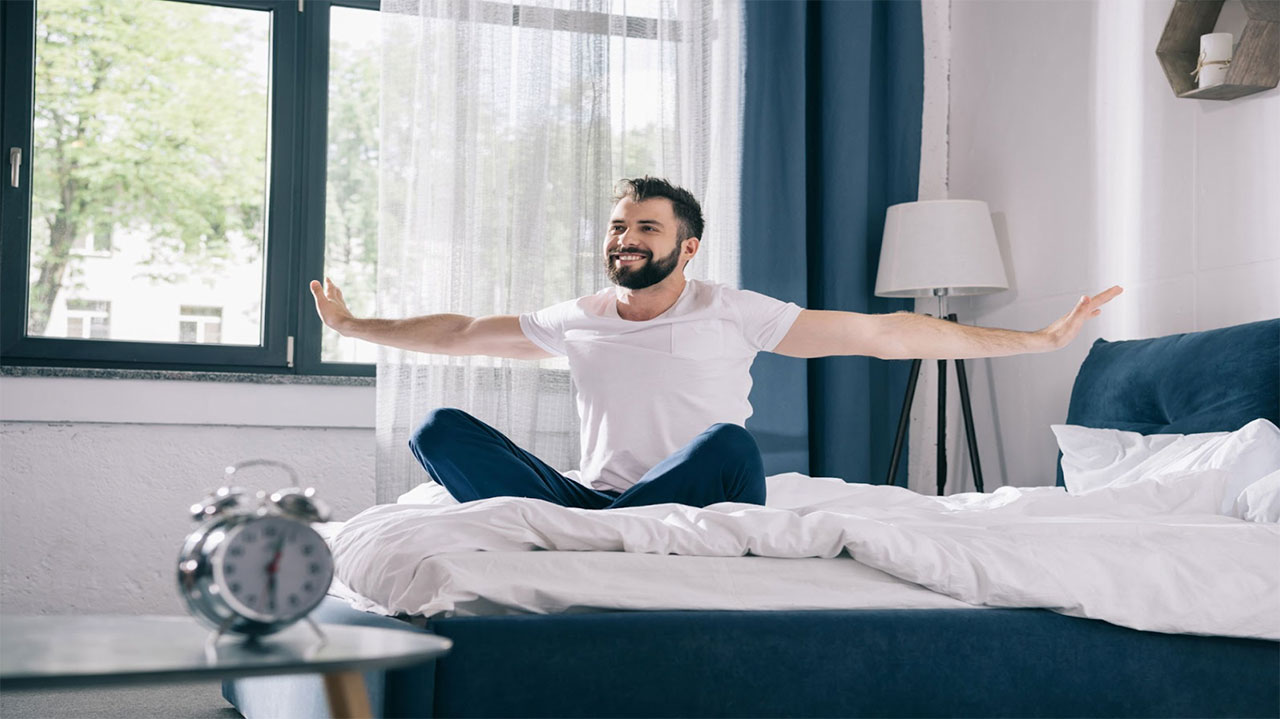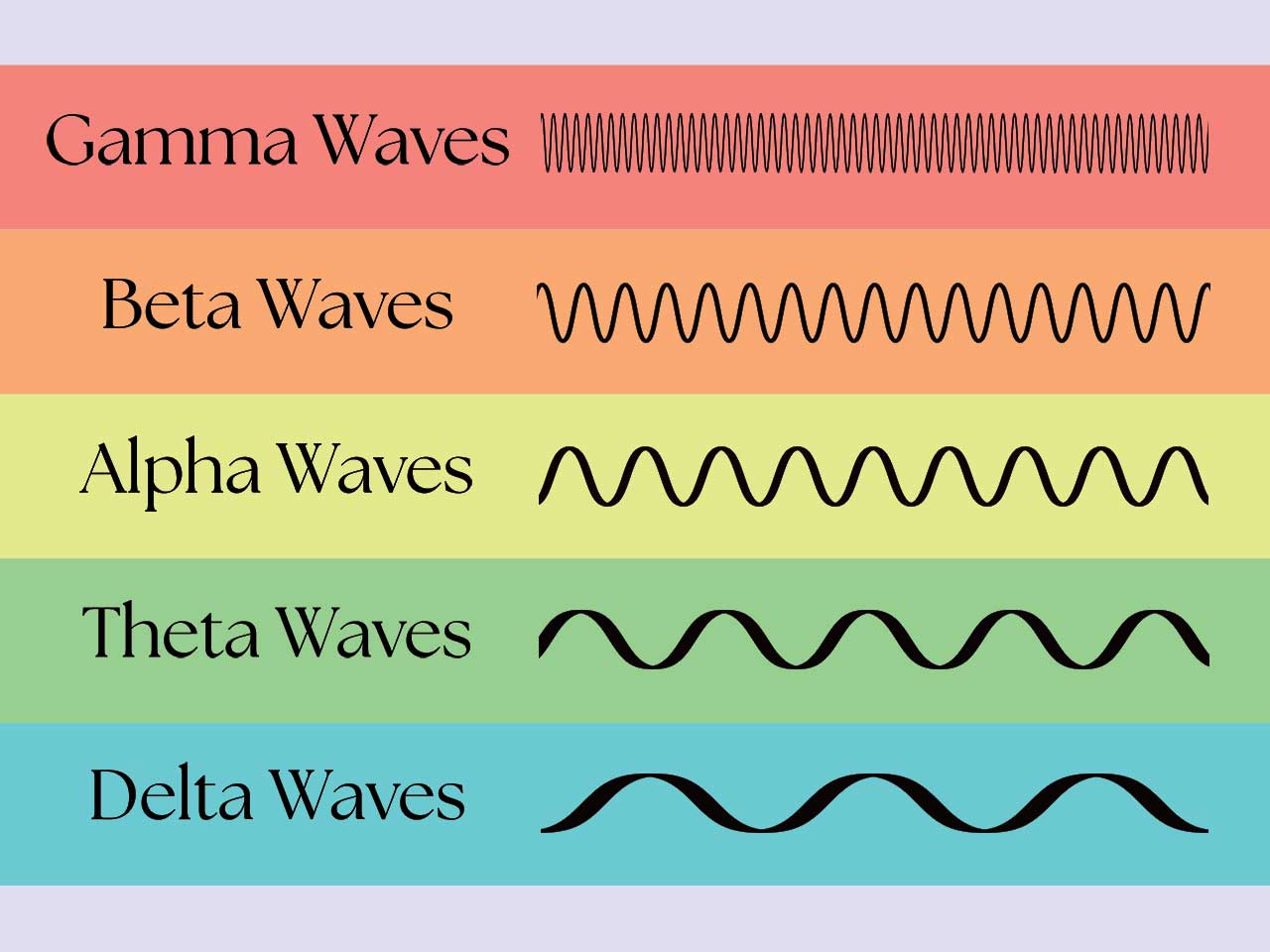High-quality sleep is a foundation for peak health. Your physical and mental well-being, from the function of your immune system to your ability to concentrate and perform daily tasks effectively, all depend upon a good night’s rest.
Unfortunately, quality sleep can be hard to find. Many people struggle to achieve consistent, restful sleep due to factors such as stress, irregular schedules, and excessive screen time, which can significantly impact their quality of life.
This is where sleep trackers and wearables can make a profound difference.
Sleep trackers are designed to monitor physiological signals such as heart rate, movement, and breathing patterns, as you sleep, and then provide you with valuable insights into the quality and duration of your rest.
They can help you understand your different sleep stages, from deep sleep to REM, while detecting disturbances like restlessness or sleep apnea. From there, they can provide detailed sleep reports and personalised recommendations.
These devices come in different forms—smartwatches, headbands, rings, masks, and more—each with unique features and methods for collecting data.
Investing in a sleep tracker allows you to make targeted lifestyle adjustments, refine your sleep patterns, and ultimately enhance your daily performance and long-term well-being.
Sleep trackers are powerful tools for anyone looking to optimise their rest and improve overall health, and below are the best options out there today.
1. Muse

Muse is a wearable headband that uses EEG sensors to monitor your brain waves and understands when you are active, at rest, or deeply focused.
There are also PPG sensors for heart rate and blood circulation, and it also measures breath and body movement.
You can use it while you meditate, getting real-time audio feedback based on your brain activity so that you can train your mind. It comes with a huge suite of guided meditations and audio entrainment programs.
You can also use it as you sleep, 20% of users said it improved their sleep quality. One charge can last 10 hours, enough to get you through the night.
You can get their two devices on the Muse Website. The Muse S is currently $339.99 and is the more comfy option designed with sleep in mind, while the Muse 2 is $212.49.
2. Bia Smart Sleep Mask

Bia Smart is a smart sleep mask that uses neurofeedback to track your brain activity through the night, during a nap, or as you meditate.
Designed to help you fall asleep faster, it’s comfortable enough to wear through the night, completely blacks out surrounding light, and comes with neural music to block out unwanted noise and help you drift off to sleep.
When it’s time to wake up, the visor produces a gentle ‘sunrise’ alarm of light colour, to mimic the way nature does it. Then you can look through the data and insights from the night.
There’s a current early bird price of $399 on the Bia website. They also offer a Premium option for $499 which comes with added content and colour selection, or Ultra for $1,499, which includes a virtual meeting with the founders and personalized sleep coaching.
3. Oura Ring

The Oura Ring is a stylish and inconspicuous wearable that sits comfortably on your finger, blending seamlessly into your daily life.
It provides detailed insights into sleep stages, and offers a ‘readiness score’, which gives you an indication of how ready you are to get up and face the day—or lie in bed a little longer.
The Ring starts at $349 for the silver or black options, $399 for brushed silver or stealth, and $499 for gold or rose gold.
However, for many of the premium features—in-depth analytics, live heart monitoring, blood oxygen measures, and more—you’ll need a subscription for $69 per year.
Overall, the Oura Ring is a good option but is likely superseded by the RingConn (below).
4. RingConn Gen 2

RingConn stands out as a strong competitor to the Oura Ring and is a top choice among sleep trackers, particularly for its ability to monitor sleep apnea and its comprehensive sleep monitoring features.
It provides insights into everything from sleep stages to heart rate, respiratory rate, and skin temperature, making it a powerful tool for understanding and improving sleep quality.
When compared to the popular Oura ring, RingConn boasts better battery life, at least as many features and metrics, offers groundbreaking sleep apnea tracking and doesn’t require a subscription for all the benefits.
And it’s all at a more affordable price of $299 on the RingConn website. You can also choose between silver, gold, and matte black.
5. Whoop Band
The Whoop Band is a wristband designed for measuring your body all day and night, during workouts or as you sleep.
It captures biometric data to give you insights into your heart rate variability, stress, and sleep performance. Then it can offer custom recommendations on habits and lifestyle changes to improve your health.
The band can track which stage of sleep you’re in, calculate how much sleep you need based on other patterns in the data, and help you build the perfect sleep schedule.
There’s a free one-month trial on the Whoop website and a huge range of customizations on the colours and materials. Then it’s a membership of $319 for a year or $539 for two years.
6. Apple Watch 10

Apple has been in the wearable game for a while, and the new Apple Watch 10 is a great option with sleep-tracking functions.
You can track your time spent in the 4 dominant sleep stages, and keep track of vitals like heart rate and temperature during the night.
The watch is now capable of identifying sleep apnea and disruptions of sleep patterns using advanced AI, and can generate reports that can be sent to your doctor to help find the best treatments.
Of course, the smartwatch does a lot more than help with sleep, with plenty of tools and apps to help you with your fitness and wellbeing, entertainment, navigation, and communication.
The Apple Watch 10 starts at $399, or $33.25 per month for 12 payments over a year. Additional features like titanium material and a larger display will increase the price accordingly.
7. Google Pixel Watch 3

The other tech giant, Google, is also in the smartwatch game, and their Pixel Watch 3 is quite capable of getting you more quality nights’ sleep.
Can measure your heart rate, readiness, and cardio load (helps you tell if you are over or under-training). With this information you can tailor workout plans to perfectly suit your needs and ability.
The Pixel Watch 3 can even call emergency services on your behalf if there is a lack of a pulse. One thing it lacks is sleep apnea detection, which is available on the Apple Watch.
The Pixel Watch 3 starts at $349.99, for the larger size, added 4G functionality, or other addons, you’ll pay extra.
You’ll also get 6 months of Fitbit Premium for free, which you’ll need for some of the advanced insights and customized workouts, the subscription starts from $9.99 a month after the free trial when bought through Google’s Pixel website.
8. Fitbit Inspire 3

Fitbit isn’t just a premium subscription for your Google watch, they have their own standalone watch and the Fitbit Inspire is the lowest-priced sleep tracker and biohacking wearable on the list.
The watch is light and comfortable, easy to use, has up to 10 days of battery life, and is rich in data and insights.
It can track data on everything from heart rate to sleep stages, skin temperature, and blood oxygen levels. It can also provide insights and scores on your stress levels, quality of sleep, and suggests your peak workout times.
The Inspire 3 also comes at the low price of $99.95 on Google’s store, though like the Google Pixel Watch, you’ll want a Fitbit Premium subscription for some advanced features and workouts.
9. Samsung Galaxy Ring

Samsung is also getting into the wearable domain, having released their Galaxy Ring earlier this year.
Pair it with the Samsung Health app on your Android smartphone, and you’ll get analyses of your sleep quality (including snore detection), heart rate, skin temperature, and physical activity levels.
Made of titanium and available in three colours (black, gold, and silver), it’s waterproof up to 100 metres, and has about a 7-day battery life.
Overall it’s a great wearable, the drawbacks being you will need the Samsung Health app to use it, and at $399.99 it isn’t cheap. You can purchase the Galaxy Ring on Samsung’s website.
10. Frenz Brainband

The Frenz Brainband is another headband, designed specifically for improving the quality of your sleep.
It can pick on a number of signals—brain waves with EEG, eye movements with EOG, and facial muscle movements, heart rate, and SpO2 with EMG. This gives it a wealth of data to draw insights from.
The Brainband also has its own AI model that can guide your sleep in real-time, delivering personalised audio sessions and music, based on strategies from Cognitive Behavioural Therapy.
It delivers these audio sessions through bone-conduction speakers, so nothing needs to be placed in or over the ear, and it’s made of thermoplastic elastomer which makes the device more comfortable.
At $650, the Frenz Brainband is on the expensive side, but considering how comprehensive the metrics and insights are, and the ability to adapt in real-time, it’s one of the most effective options for improving sleep quality.
Better Sleep Through Wearable Technology
Fitness trackers and wearables are an increasingly popular tool to aid in our health and wellness.
Now we are able to measure and track a wide range of important bodily signals, and glean valuable insights that can instruct us on better habits and routines.
Sleep is essential for good health, so it follows that the best wearables today make a point of getting a better night’s rest.
Today there’s an option for anyone. Whether you want a cheap and effective way to gather basic metrics, help with sleep apnea specifically, or you want other fitness metrics and tools included.
And of course, style and comfort matter. So whether you feel more comfortable with a ring, watch, sleep mask or headband, and you want them in black, gold, or silver, you’ll find an option that suits your tastes.
- Flow Experience Design: 20 Flow Triggers For Peak Performance - May 10, 2025
- How The Muse S Athena Works For EEG And fNIRS Neurofeedback - April 24, 2025
- The 10 Best Pomodoro Timer Apps For Remote Workers - April 11, 2025






 This website uses cookies to improve your web experience.
This website uses cookies to improve your web experience.